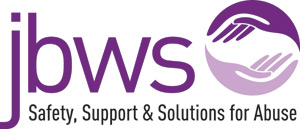
With the COVID-19 pandemic affecting the workplace environment in various ways, greater attention is being paid to employees’ mental health and happiness than ever before. In many instances, it falls to HR to ensure that employees feel valued, and alongside their expectation of greater empathy comes a demand for improved diversity, equity, and inclusion initiatives. At JBWS, the Vice President of People and Culture (Karen Johnson) reports to the CEO and is a key member of the senior leadership team. This position is responsible for all human resources areas including talent acquisition, compensation, retention, benefits and wellness, performance management, compliance, and employee relations. Additionally, they are responsible, along with the Leadership Team, for the development and execution of policies and procedures that support the vision of the agency to achieve diversity, equity, and inclusivity within JBWS.
The COVID pandemic has also elevated wellness as a priority for our staff, our clients, and the delivery of services to survivors of domestic violence. The Vice President of People and Culture will oversee JBWS’ new Wellness Initiative Supporting Health (WISH) Program as it relates to employee wellness. The WISH Program will provide new opportunities for promoting wellness into their regular work-day.
JBWS’ frontline staff provided services to 5,297 domestic violence clients in 2020/2021 and trauma was a presenting symptom for most of those situations. The impact of trauma is well-known and often includes decreased concentration, appetite and sleep, increased anxiety, and depression. Trauma survivors are twice as likely to be diagnosed with PTSD. Our staff are continuously exposed to our client’s trauma narratives. The effect on staff is known as “secondary traumatic stress”, the emotional duress that results when an individual hears about the firsthand trauma experiences of another.
The unmitigated impact of secondary traumatic stress can negatively impact JBWS’ domestic violence programs and/or shelter at both a personal and organizational level. Ultimately, this can affect the quality of the services JBWS provides to domestic violence victims. As an organization, we have the power to either promote job satisfaction or contribute to burnout. Not attending well enough to the impact of the traumatic content to which our staff is exposed can lead to burnout, absenteeism, compassion fatigue, and job turnover. Increasing JBWS’ wellness activities for clients and staff will further support the health and wellbeing of all engaged in our life-saving services.

